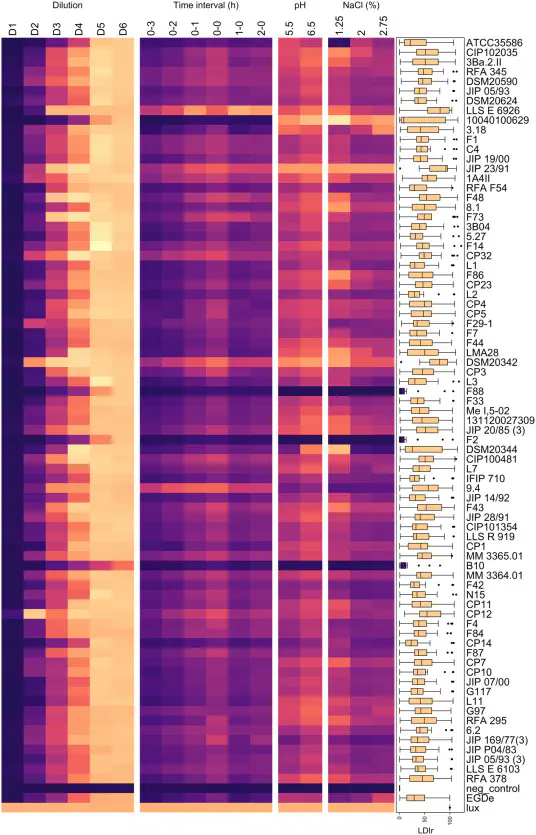A selection process based on the robustness of anti-Listeria monocytogenes activity reveals two strains of Carnobacterium maltaromaticum with biopreservation properties in cheese

Abstract
Biopreservation is an approach consisting of using microorganisms as protective cultures and/or their metabolites to optimize the microbiological quality and shelf life of food by ensuring safety or reducing food waste. Biopreservation strain selection pipelines mainly focus on inhibition strength to identify strains of interest. However, in addition to inhibition strength, inhibition activity must be able to be expressed despite significant variations in food matrix properties. In this study, the anti-Listeria monocytogenes EGDelux properties of a collection of 77 Carnobacterium maltaromaticum strains were investigated by high throughput competition assays under varying conditions of co-culture inoculation level, time interval between inoculation with C. maltaromaticum and L. monocytogenes, pH, and NaCl, resulting in 1309 different combinations of C. maltaromaticum strains and culture conditions. This screening led to the selection of two candidate strains with potent and robust anti-L. monocytogenes activities. Deferred growth inhibition assays followed by halo measurements, and liquid co-culture followed by colony counting, revealed that these two strains exhibit a wide anti-Listeria spectrum. Challenge tests in Camembert and Saint-Nectaire cheese revealed both strains were able to inhibit a cocktail of five strains of L. monocytogenes with high potency and high reproducibility. These results highlight the importance of including the robustness criterion in addition to potency when designing a strain selection process for biopreservation applications.